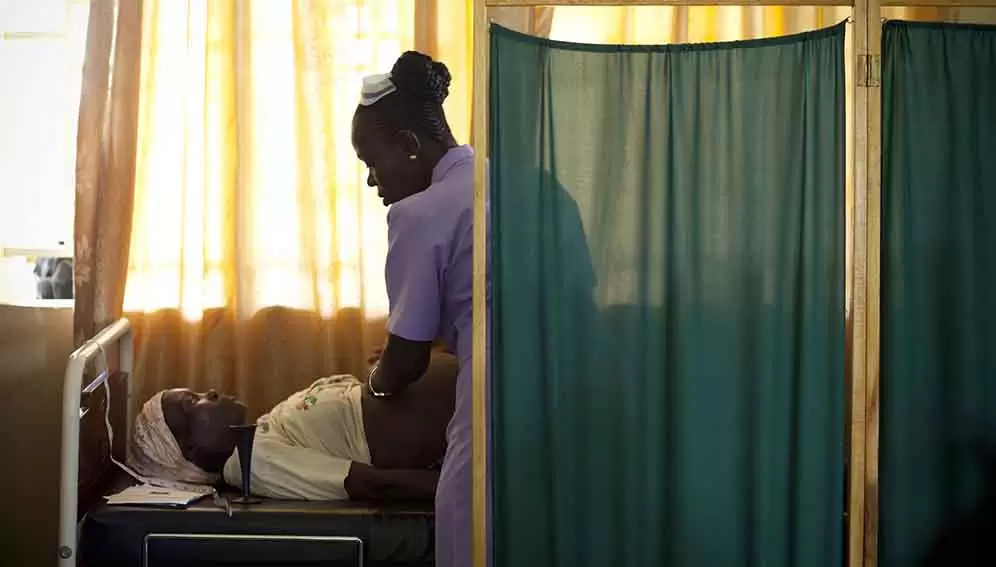By Mary Taruvinga
The Health Law Policy (HLPC) working together with the Institute for Young Women’s Development (IYWD) is pushing for amendment of the abortion law in Zimbabwe to create a safe abortion environment for women and girls.
This comes at a time when unsafe pregnancy terminations are largely contributing to maternal deaths in the country amid issues of stigma and criminalisation of abortion.
Zimbabwe is currently relying on the Termination of Pregnancy Act enacted in 1977.
The Act allows abortion in specific circumstances, which the two organisations feel are not broad enough to allow safe abortions.
HLPC programmes coordinator Dorcas Chitiyo told NewZimbabwe.com on the sidelines of a media sensitisation training held over the weekend, that there is a need to move with the times and create a safe environment for abortions in Zimbabwe.
“The issue that we are grappling with is that there are many barriers that women face, that are in existence, that are prohibiting access to safe abortions.
“We start with our legal framework, that is the Termination of Pregnancy Act of 1977.
“It creates challenges for women because it has very restricted grounds on which abortion is legal…maybe a woman is a survivor of a sexually violent offence or rape resulting in pregnancy, a crime of incest or in the event that it has been recommended by a doctor that the pregnancy continuation is not safe for the child as well as the quality of life for the child is anticipated to be so poor that termination is recommended by a medical practitioner.
“Now given that this act is from 1977, there have been many medical advances and much research and a lot of work done to ensure that abortions are accessed safely through medical procedures and medically without the need of always resorting to surgical processes,” she said.
Chitiyo said the reality is that women currently have to resort to only seeking legal abortion in a few instances but this does not mean that abortion is not happening.
“Where there are restrictions, what this simply does is it puts abortion underground. It leads to clandestine work that can endanger the life of women, it can endanger their quality of life. It might compromise their future …
“So we are saying there is a challenge in the environment we are operating in because of this criminalisation where a person who commits an abortion can be imprisoned for up to five years,” she added.
Under the current law, a person who assists with an abortion can also be imprisoned.
According to Chitiyo, there is a lot of stigma, and there are a lot of dangers that are associated with that environment which is restricted.
“We are calling for change, where we say the grounds upon which abortions are allowed in Zimbabwe are broadened to factor in mental health, social economic considerations.
“We are calling for the law to be amended. Our existing law of 1977 is way out of date. It needs to catch up with the present time.”
She said even when abortion grounds are available a woman has to go through so many processes and many permissions, a situation which has to be changed.
HLPC and ITYD have since come up with a position paper on safe abortion highlighting the issues mentioned above among other things.
The position paper argues that the time for reform towards access to legal and safe abortion in Zimbabwe is now.
The civic society organisations are working with support from the Safe Abortion Action Fund (SAAF).
The two organisations said Zimbabwe has one of the highest rates of contraceptive use in Sub-Saharan Africa but also one of the highest maternal mortality ratios in the world.
“It has been observed that there are disparities in access to sexual and reproductive health care across age groups.
“A high unmet need for contraceptives has been consistently observed among unmarried and adolescent women.
“These gaps in Zimbabwe’s family planning program leave women at risk of experiencing an unintended pregnancy and abortion,” they said.
In 2016, an estimated 65,300 induced abortions occurred in Zimbabwe.
This translates to a rate of 17 abortions for every 1,000 women aged 15–49.
